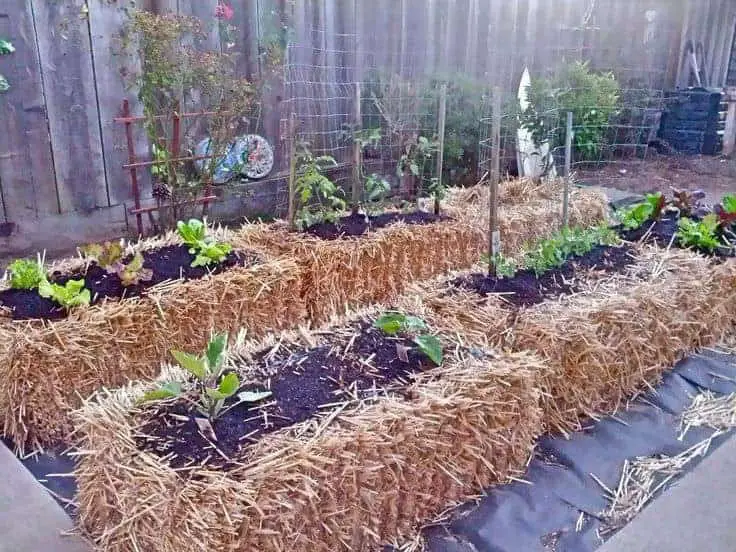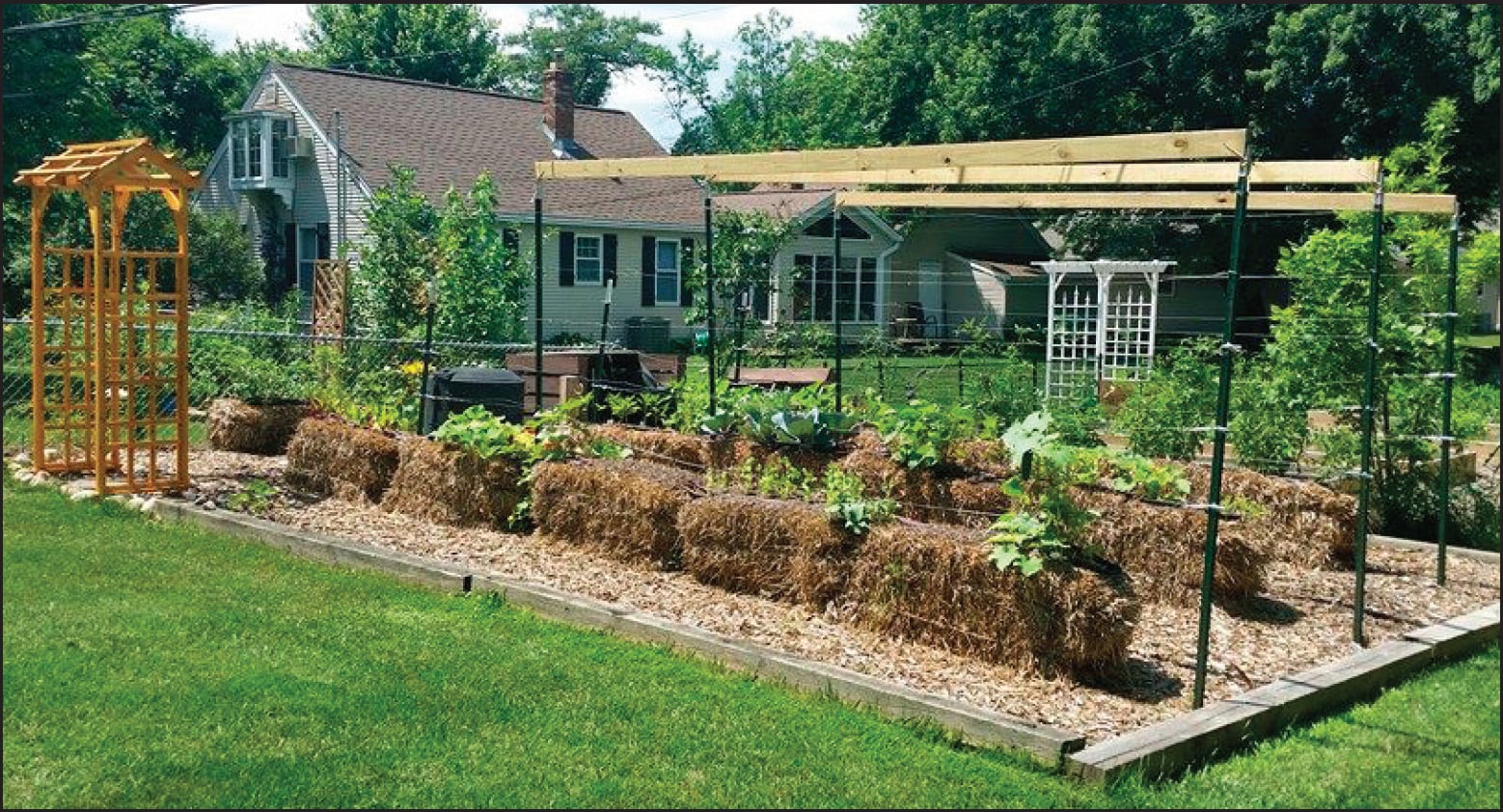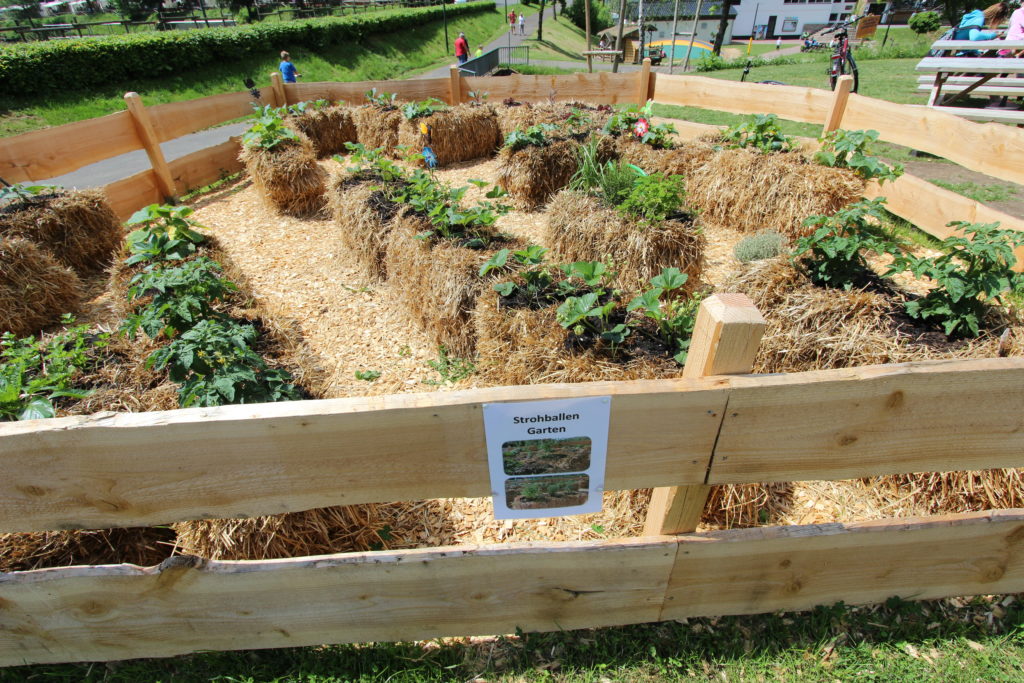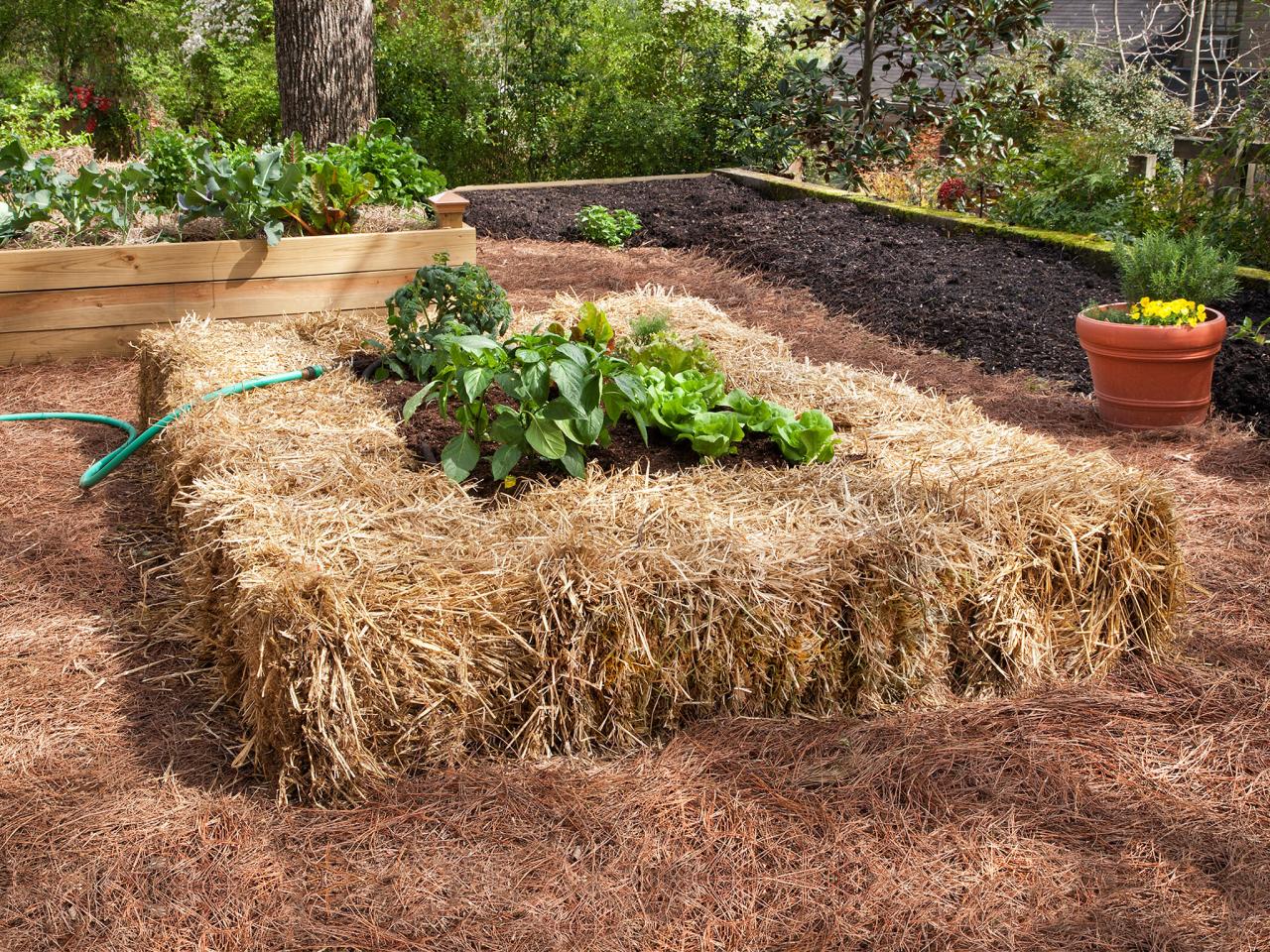
The Last Straw[bale garden]! WSU Master Gardener Program of Thurston
Straw bales provide an alternative gardening medium to growing directly in the ground or a raised garden bed, as points out Mallory Micetich, a homes expert from Angi. She says it can be one of the most convenient gardening methods: 'The growing process is simple, affordable, and highly customizable.' The benefits of straw bale gardening

Introduction to Straw Bale Gardening 1001 Gardens
Photos [Show slideshow] View beautiful straw bale garden photos. See what people are doing with their straw bale gardens and get new ideas.

Solve Your Soil Issues with StrawBale Gardening The Tennessee Magazine
Let it soak. Day 2: Soak bales with another gallon of water. No fertilizer. Day 3 and 5: Repeat 1 cup fertilizer and 1 gallon water. Day 4 and 6: Water only. Day 7, 8, 9: Just half a cup of fertilizer, water as usual. Day 10: One cup of traditional "balanced fertilizer" (equal parts N-P-K such as 10-10-10).

MyNorthTickets The Secrets to Straw Bale Gardening
Position the bales. This is an important step as the bales should be positioned so the narrow side with the visible cut straw edges is facing up. The hollow stems of the cut side help water (and the fertilizer during the conditioning process) fully saturate the entire bale. Also, don't remove the strings.
Photos Of My Straw Bale Garden… GRANNY'S COLORFUL
Get a bale of straw (not hay, which contains grass and weed seeds) at your local hardware or farm supply store; organic is best so it won't contain herbicides that may linger and kill the plants you do want. They're usually about $10 to $15.
A Most Uncivilized Adventure Straw Bale Gardening...
The beautiful thing about using straw bales is that you can create various formations which will help you save space and add more charm to your garden. Some popular options include classic straight rows, L-shaped configurations, U-shaped configurations , and square setups.
Growing The Seeds Of Love A Guide To Straw Bale Gardening
Position your bales [/mf_h2] Before you set up your bales, lay down landscape fabric to prevent weeds from growing up through the bales. Arrange the bales side by side in rows, with their cut sides up. The strings that bind the bales should run across the sides, not across the planting surface.

new garden plants Straw bale gardening, Beautiful vegetable garden
What Is a Straw Bale Garden? A straw bale can make a great growing medium, and a straw bale garden is a raised bed in which the potting soil, compost, and plants are all housed inside the straw bale. Straw bale gardening is a great way to grow herbs and vegetables, and can also be used to grow ornamental plants.

Straw Bale Gardens Complete Guide To Growing A Bountiful Garden Without
1. Make Sure You Have Access to Straw Bales Before starting with straw bale garden prep, make sure that you have access to straw bales. Straw is easily identified by its hollow structure. Isn't hay the same as straw? Is there a difference between hay vs. straw bale gardening? Good question!
A Straw Bale Garden Was Born Today… GRANNY'S COLORFUL
Cacti & Succulents In gardening, there are many options for growing plants, including in-ground, containers, raised beds, and hydroponic systems. Why choose to plant in a straw bale garden? Gardening expert Kelli Klein shares the benefits of straw bale gardens and how to build your own! Last updated: September 22, 2023

How to Start Gardening in Straw Bales Garden Savvy
Garden What is straw bale gardening? This accessible, alternative gardening method makes it so much easier to grow plants. By Kiran Grewal Published: 21 September 2022 Simon Gibbins

My straw bale garden YouTube
1. Tomatoes Tomatoes are cheap to grow but expensive to purchase from a store. Therefore, if you can produce tomatoes, you should. The great news is tomatoes grow well in straw bales. Smaller varieties do particularly well because straw bales have less square footage to work with than the larger types.

Straw Bale Gardening The Daily Garden
Straw bale gardening is an easy way to grow a raised vegetable garden without using any other kind of soil. Seeds are planted in bales that are treated with an organic nitrogen source like bone meal or something non-organic, like fertilizer.

Our New Straw Bale GardenPart I Root Simple
Image Credit: Tom Britt @ Flickr Before planting, there are a few steps you need to accomplish to achieve a successful straw bale garden - and you'll need 10-14 days to condition your bales.. Water and time will naturally begin to rot the bales for you, though it helps to add nitrogen, phosphorus and potassium fertilizer as you keep the bales thoroughly wet for the easiest planting start.

Straw Bale Gardening Tips HGTV
Straw bale gardening is the perfect way to grow a lush, bountiful garden in areas with poor quality soil. It's like planting in grow bags at a fraction of the cost. 1. Select And Collect Straw Bales For Your Garden. When choosing the type of straw for your garden, choose oat, vetch, rye, wheat, buckwheat, or barley. Avoid corn, flax, linseed.

Straw bale garden week eleven Straw bale gardening, Strawbale
Gardening Edible Gardening Vegetable Gardening The Best Plants for Straw Bale Gardening and How to Create Your Own Straw bale gardens are a vegetable lover's dream because they're easy to make, versatile, and inexpensive. Use these easy instructions to make your own. By Claire Harmeyer Updated on November 25, 2022 Photo: Brie Passano